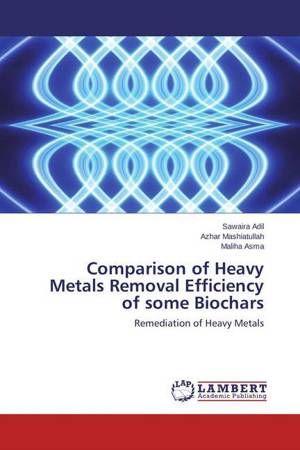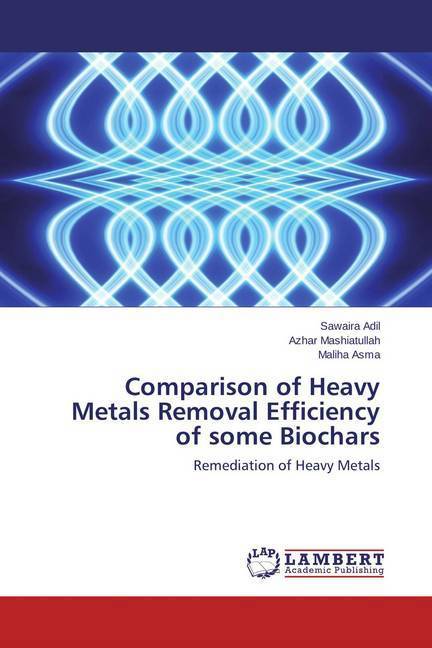
Bedankt voor het vertrouwen het afgelopen jaar! Om jou te bedanken bieden we GRATIS verzending (in België) aan op alles gedurende de hele maand januari.
- Afhalen na 1 uur in een winkel met voorraad
- In januari gratis thuislevering in België
- Ruim aanbod met 7 miljoen producten
Bedankt voor het vertrouwen het afgelopen jaar! Om jou te bedanken bieden we GRATIS verzending (in België) aan op alles gedurende de hele maand januari.
- Afhalen na 1 uur in een winkel met voorraad
- In januari gratis thuislevering in België
- Ruim aanbod met 7 miljoen producten
Zoeken
Comparison of Heavy Metals Removal Efficiency of some Biochars
Remediation of Heavy Metals
Sawaira Adil, Azhar Mashiatullah, Maliha Asma
Paperback | Engels
€ 54,95
+ 109 punten
Omschrijving
Heavy metals are found abundant in the water sources due to the rapid industrial and agricultural development together with the population growth. Metals from polluted water bodies can then enter into the surrounding soil, surface water, and groundwater. Polluted water when consumed by living organisms, the toxic heavy metals can accumulate and cause harm. It is important to remove heavy metals from industrial sources before they enter into the environment. Conventional treatment processes for removal of heavy metals are either very expensive, generation of large volume of chemical sludge and extra operational cost are required for sludge disposal. The book is about to develop a low cost sorbent for effective removal of heavy metals from Industrial waste water and to determine removal efficiency of biosorbents (pine wood, paper mulberry wood/bark and rice husk bio-chars) in comparison with commercially available (silica powder) under different experimental conditions. Method of preparation of biochars and heavy metals removal efficiency of biochars has been described in detail.
Specificaties
Betrokkenen
- Auteur(s):
- Uitgeverij:
Inhoud
- Aantal bladzijden:
- 124
- Taal:
- Engels
Eigenschappen
- Productcode (EAN):
- 9783838395807
- Verschijningsdatum:
- 13/02/2015
- Uitvoering:
- Paperback
- Afmetingen:
- 150 mm x 220 mm
- Gewicht:
- 181 g

Alleen bij Standaard Boekhandel
+ 109 punten op je klantenkaart van Standaard Boekhandel
Beoordelingen
We publiceren alleen reviews die voldoen aan de voorwaarden voor reviews. Bekijk onze voorwaarden voor reviews.









